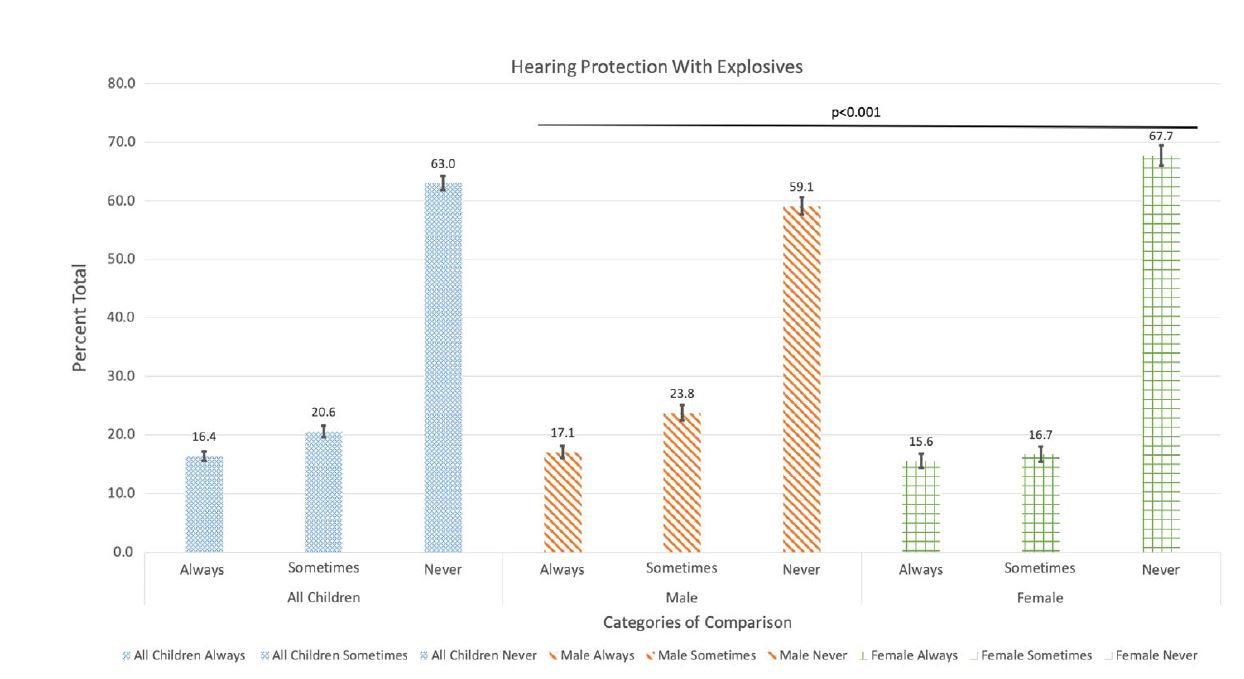If ear buds or head phones are seemingly permanently attached to your child’s head, they might be at more risk for hearing loss than you’d expect.
A new study co-authored by Dr. Jay Bhatt, a CHOC Children’s otolaryngologist, finds that nearly a quarter of U.S. children are at risk for hearing loss from exposure to loud sounds.

The study, published in a medical journal called “Laryngoscope,” also found several differences between boys and girls when it comes to exposure to loud noises: Though one in five children have been exposed to firearm noise, boys were much more likely to be than girls.
Further, despite less exposure to loud noises, girls were less likely than boys to wear hearing protection when exposed to loud sounds, Dr. Bhatt and his co-authors found. Overall, only 16 percent of children always used hearing protection in the last 12 months during explosive sound exposures.

The study found that girls were less likely to wear hearing protection than boys.
This discrepancy underscores the importance of parents and healthcare providers educating both boys and girls of the dangers of exposure to loud noises, as well as the importance of wearing hearing protection, such as earplugs or ear muffs, Dr. Bhatt says.
The study also surmises that the frequency of children being exposed to loud noises is likely the cause of the noise-induced hearing loss noted in one in five adults ages 20 to 29. The study also found that up to 96% of parents perceived their children to be at no to minimal risk of hearing loss from excessive noise.
Here are some things parents can do to help protect their children’s hearing:
- Teach children to turn the down the volume on devices and to take breaks from listening.
- Model good listening habits yourself.
- Use hearing protection. Bring earplugs or ear muffs to events with a potential for loud noise.
- Keep children away from speakers or other large noise sources.
- Leave an environment if your child complains about noise, ear pain or ear ringing; covers their ears; or seems uncomfortable, consider an early exit.
Here are some signs that your child may be suffering from hearing loss and should be evaluated by a specialist:
- They have difficulty achieving academically, especially in reading and math
- They are socially isolated and unhappy in school
- They have persistent ear discomfort after exposure to loud noise
- They show inattentiveness
- They have buzzing or ringing in their ears
- They don’t respond to spoken words
- They have muffled hearing
- They have frustration hearing speech and other sounds
- They avoid conversation
- They show signs of social isolation or depression
—
The post The dangers of loud noises and little ears: What parents should know appeared first on CHOC Children’s Blog.

